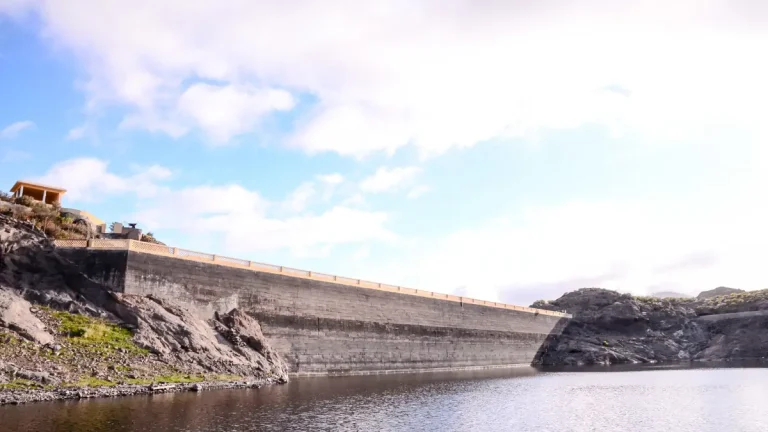When summer hits Gauteng, water becomes the new load shedding. Rand Water has already warned of shrinking storage capacity, while maintenance on the Lesotho Highlands Water Project (LHWP) will further squeeze supply. The water crisis is no longer just a municipal commodity for SMEs—it’s a critical risk that can decide whether the doors stay open.
Thank you for reading this post, don't forget to subscribe!ALSO READ: Rand Water vs Joburg Water: Who Manages What?
Why The Water Crisis is Cutting Deeper
Gauteng faces a triple threat:
- Aging pipes. Leaks, bursts, and overdue upgrades drain the supply before it even reaches taps.
- Poor planning. Rapid population growth outpaced infrastructure, with little scenario planning for demand.
- Climate change. Erratic rains and prolonged droughts keep dams and groundwater under constant stress.
“South Africa is already water-stressed, and Gauteng sits on the frontline,” says Alison Groves, WSP’s Built Ecology Discipline Lead in Africa. “Businesses can’t afford to assume the taps will keep flowing.”
The SME Squeeze
Large corporations can cushion shocks with contingency budgets. Small businesses don’t have that luxury.
- Restaurants, salons, laundromats, and bakeries risk shutting mid-service when taps run dry.
- Workshops and light manufacturers lose output when cooling, rinsing, or sanitation systems stall.
- Offices and gyms send staff home when toilets stop working.
- Retailers and spaza shops take the knock when wholesalers can’t supply.
Even after supply returns, owners carry the costs of lost trade, spoiled stock, and overtime to catch up.
The Looming LHWP Shutdown
The six-week shutdown of the LHWP—one of Gauteng’s main lifelines—will put every business under pressure. Factories, farms, and mines will scale back, and SMEs downstream will pay the price.
“Once upstream producers falter, the pressure rolls downhill,” warns a Johannesburg-based analyst. SMEs in food processing, laundries, and beverage production will see costs spike as suppliers push through price hikes.
Why SMEs Can’t Wait
Water shortages bite harder than power cuts. A generator can keep lights on; there’s no easy substitute when pipes run dry. “If water isn’t there, businesses simply stop,” Groves cautions.
That’s why SMEs must make water resilience business-critical—not optional.
Five Actions SMEs Can Take Now
- Audit and repair. Track consumption daily. Fix leaks immediately—a dripping tap can waste 30 litres an hour. Install pressure-reducing valves to prevent bursts.
- Cut demand. Fit low-flow taps and dual-flush toilets. Consolidate water-intensive tasks. Train staff to conserve, and post usage visibly to keep accountability high.
- Add backup supply. Install rain tanks for cleaning, bathrooms, or irrigation. Reuse greywater for flushing or landscaping. Bigger SMEs—like laundries—should consider onsite treatment systems.
- Collaborate locally. Bulk-buy storage tanks with neighbours. Share suppliers and emergency deliveries. Join chambers or business parks lobbying municipalities for fixes.
- Diversify risk. Review supply chains for less water-intensive options. Negotiate flexible contracts. Explore drought-indexed insurance if it fits your budget.
Water Crisis: Why Action Matters
Experts estimate Gauteng loses 40% of piped water through leaks. Fixing that is the fastest win—but municipalities can’t do it alone. SMEs need to plug their own gaps and push for systemic change.
“We saw with load shedding that businesses adapted creatively,” says Hlologelo Manthose, WSP Sustainability Consultant. “With water, the risks are greater—but so is the chance to reinvent how we use every litre.”
A Call to Arms for Gauteng SMEs
This Heritage Month, water must be part of the conversation. SMEs can’t afford to wait for policy shifts—every litre saved now protects jobs, livelihoods, and communities.
Start here today:
- Audit your site and fix leaks this week.
- Install at least one water tank before year-end.
- Partner with neighbours to share costs and solutions.
- Train staff to value water—it pays back.
- Push local leaders to prioritise pipe repairs.
Johannesburg’s economy runs on SMEs. By saving, storing, and recycling water smartly, businesses can keep trading through shortages and lead the way in resilience.
Water security isn’t the government’s problem alone—it’s everyone’s business. In Gauteng, survival depends on it.




